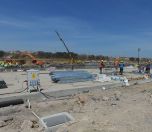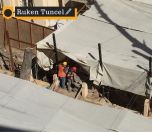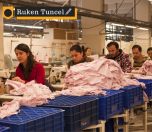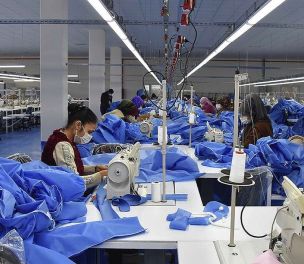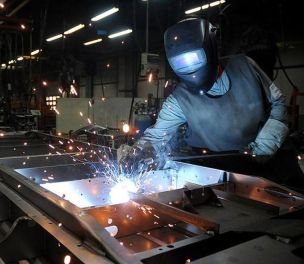Click to read the article in Turkish
The Confederation of Public Workers' Unions (KESK) released a report regarding the problems experienced by workers in Turkey during the novel coronavirus (Covid 19) pandemic yesterday (April 27).
In its report, the Confederation has listed the following problems based on the information provided by Provincial Outbreak Monitoring Committees:
* There are problems with hanging hand hygiene products in visible and accessible spots in workplaces and refilling them when they are empty.
* No general medical examination is carried out on personnel.
* There are serious problems especially with disinfecting service vehicles and ensuring that the number people in a vehicle allows social distance.
* The information provided to ensure cleaning and hygiene in workplaces and the works to maintain workers' health and safety are inadequate.
* Especially in some workplaces affiliated with the Turkish Post (PTT), workers are not provided with a sufficient number of protective equipments and disinfectants, alternate working hours are not observed, the demands of subcontracted workers are not taken into consideration and there is pressure in terms of the number of parcels to be delivered.
* The works at the construction of Mersin Akkuyu Nuclear Power Plant have not been halted. Over 6,000 people are still working, sometimes 200-300 people enter and leave the site at the same time, the construction sites are located in residential areas, the foreign nationals mostly stay in Silifke district and workers are accommodated in ward-like dormitories, which is paving the way for the spread of the disease across Mersin province.
* As it is the case throughout the country, there are still problems with provision of masks in workplaces.
* Health laborers working at Family Health Centers are not provided with sufficient personal protective equipments. "Family Health Centers have to meet their needs themselves," is put forward as the reason for this.
* Union representatives are not included in Provincial Pandemic Boards, Occupational Health and Safety and Infection Committees.
* As equipments are not personalized, their full protectiveness is weak.
* The shortage of equipments and unsuitability of physical space lead to problems with setting up a triage.
* As there is no appointment system in Family Health Centers, they sometimes get so crowded that social distance is violated. The risky patients showing the symptoms cannot be examined in a separate place.
* Health workers with chronic diseases are forced to continue working.
* When some services are understaffed, healthcare personnel are made to work in these risky services without getting a sufficient orientation training. Personnel are verbally assigned to work in more than one service in a day.
* As the primary, secondary and high schools affiliated with the Ministry of National Education have been temporarily closed, the teachers working in these schools have been granted administrative leave. However, the personnel of the district and provincial organizations of the Ministry and administrative staff of the schools as well as all units affiliated with other public institutions are still working at risk of getting infected.
* The vocational high schools, which are, in fact, supposed to be closed during the outbreak, are kept open and the production of some equipments still continues. Provincial and district education administrators are forcing school principals and teachers to work.
Concluding the report, the Confederation has also recommended a series of precautions that can be taken at workplaces against the pandemic.
It has also urged the authorities to halt work except for the production of absolutely necessary goods and services and to give paid leave to all workers, except for the ones working in these fields.
"It should be ensured that the ones working in absolutely necessary fields work by turns and by taking rest and health measures need to be taken, especially protective equipments," the KESK has added further. (AS/SD)





